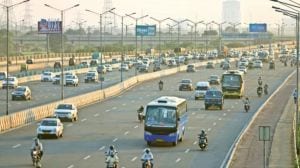A demanding peace
A few months ago when I met deposed Pakistan Prime Minister Nawaz Sharif at Jeddah, he said that they would denounce any accord India signed...

A few months ago when I met deposed Pakistan Prime Minister Nawaz Sharif at Jeddah, he said that they would denounce any accord India signed with the military regime. In the same breath, he said that if it offered India 8216;8216;something substantial8217;8217;, the country should take it, since Pakistan8217;s government is not answerable to the people. He didn8217;t spell out what he meant by 8216;8216;something substantial8217;8217;. I assume his reference was to Kashmir.
Not even Nawaz Sharif, much less any other Pakistani politician, can say that President Pervez Musharraf has conceded 8216;8216;something substantial8217;8217; on Kashmir. In fact, he can take credit that 8216;8216;to the satisfaction of both sides8217;8217; in the joint statement goes beyond the Shimla accord which has held the ground so far. That accord talked only about 8216;8216;a final settlement on Jammu and Kashmir,8217;8217; not about 8216;8216;the satisfaction8217;8217; of Pakistan.
The Kashmiris cannot say they have been abandoned. Musharraf has said at a press conference that as the peace process moved forward, any solution would take into consideration 8216;8216;the aspirations8217;8217; of the people of Kashmir. This is what Deputy Prime Minister L.K. Advani should be doing when talking to the Hurriyat leaders later this month. Any settlement with them will render Pakistan8217;s role minimal.
The time has come, however, for New Delhi to take another look at the subjects allotted to the states in the constitution. The Centre has too many powers, making a mockery of state autonomy. The Sarkaria Commission on relations between the Centre and the states did not go far enough. Whatever it did recommend stayed mostly on paper.
Jawaharlal Nehru wanted the country to be a federation and gave 8216;8216;residuary powers8217;8217; to the states. He had the Constituent Assembly pass a resolution to that effect. But the aftermath of Partition frightened him. The resolution was not implemented. It is still on hold.
Were New Delhi to give the country a genuinely federal polity, not only Kashmir but also the Northeast would gain. An autonomous status to Kashmir may bring round the Hurriyat which represents 8216;8216;the aspirations8217;8217; of the Kashmiris. The pro-Pakistan Syed Ali Shah Geelani8217;s Hurriyat lost whatever standing it had when Musharraf did not single out Kashmir but agreed to have it as one of the bilateral issues for the composite dialogue.
It would contribute to the solution if there were a free and fair election in the Kashmir under Pakistan, just as India held one on its side of the fence more than a year ago. The elected chief minister of that Kashmir should discuss with Chief Minister Mufti Mohammed Sayeed what would meet 8216;8216;the aspirations8217;8217; of the Kashmiris. The governments at Islamabad and New Delhi can pick up the threads from the two chief ministers8217; discussion. The real problem is not Kashmir. It is the hostility and mistrust fostered on both sides. Another Kashmir will crop up if a basic confidence in each other is missing.
In Pakistan, students are taught to hate Hindus. Islamabad has changed history which does not begin until the arrival of the first Muslim ruler in India. In India, Muslims are being targetted. Pakistan columnist Ardeshir Cowasjee wrote last week: 8216;8216;For over 20 years, the children and youth of Pakistan have been brainwashed and taught by bigots violence and hate.8217;8217; In India, the BJP-led government is changing history to 8216;8216;Hinduise8217;8217; the composite culture; education, heritage and information are being saffronised with a vengeance. Perhaps the two countries should appoint a joint commission of experts to look into textbooks and curricula.
Although SAARC has pledged to eliminate terrorism, it is not possible to do so when the seeds of hatred are sown in homes and classrooms. India is the 8216;8216;enemy8217;8217; in the parlance of the military, police and other forces, besides religious organisations in Pakistan, just as Pakistan is 8216;8216;enemy8217;8217; for their counterparts in India.
Musharraf8217;s assurance in the joint statement that he would not permit 8216;8216;any territory under Pakistan8217;s control to be used to support terrorism in any manner8217;8217; is a great step forward. The 9/11 attack on America has contributed to the change. His stand at the Agra summit was the opposite. He reportedly said then that an assurance on terrorism would be construed as an admission by Pakistan that it was behind it. In any case, all that is behind us. Musharraf must get kudos for giving an assurance on cross-border terrorism. It has meant reversing the policy Islamabad has been following for a long time. Nonetheless, it is true that Vajpayee would not have travelled to Islamabad if he had not got an inkling that Musharraf was willing to commit on cross-border terrorism. Now that the two leaders have made concessions for rapprochement, they should work on economic cooperation. India, the more developed country, should be willing to make concessions so that the Pakistanis develop a vested interest in the ties. That means more economics and less politics.
Ultimately, Musharraf will have to follow the policy which the founder of Pakistan, Mohammad Ali Jinnah, reinterpreted after Partition: Hindus and Muslims were not two nations; Indians and Pakistanis were. On the other hand, India where secularism is being chipped away, cannot let parochialism grow. This poses a danger to its unity. The two countries have no option but to fight fanaticism, extremism and religiosity sold in the name of nationalism.
Prime Minister Vajpayee has shown conviction and vision while persisting with his resolve to mend relations with Pakistan. But his party of Advanis, Joshis, Modis and Uma Bhartis is stuck in Hindutva which it believes gives the party sustenance. He has to change the mould in which the BJP is cast if he wants Pakistan and other countries in the region to look up to India.
- 01
- 02
- 03
- 04
- 05































